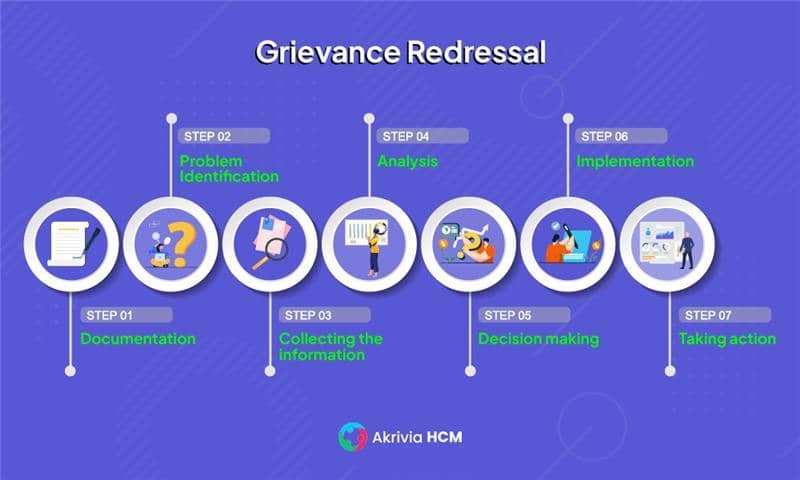A grievance redressal system is a process to address employee grievances, and it can be defined as a mechanism that enables employees to communicate their concerns to management. The grievance redressal system helps in resolving employees’ grievances in a formal manner which may be between an employee to employee or either between employee and management.
For an organization to function effectively, it is important that the employees are satisfied and happy about their job. Upon dissatisfaction with the response they receive, they can go higher up the chain until they finally reach someone who will listen to them.
The grievance redressal system provides a fair and transparent process for resolving employee complaints. It ensures that all employees are treated equally and fairly, regardless of their position or seniority. The system is implemented through various policies and procedures designed to ensure that grievances are handled fairly and impartially, without bias towards anyone involved in the process.

Complaints that come under this category are:
Let’s Recruit, Reward, and Retain
your workforce together!
